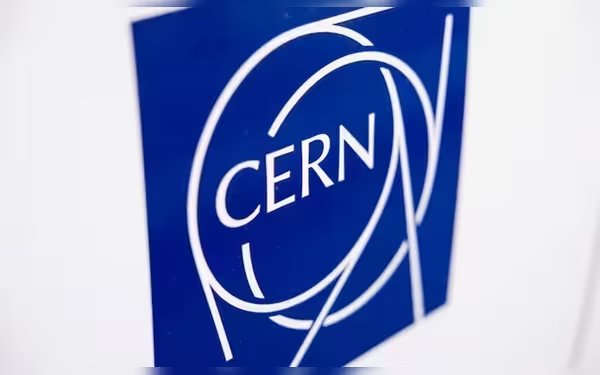Saturday, October 5, 2024 10:33 PM
CERN Ends Collaboration With Russian Scientists Amid Geopolitical Tensions
- CERN to cut ties with Russian institutes by November 2023.
- Approximately 500 scientists affected by the decision.
- International collaboration in science faces significant challenges.
 Image Credits: brecorder
Image Credits: brecorderCERN announces end of cooperation with Russian institutes, impacting 500 scientists amid ongoing geopolitical tensions.
In a significant move that underscores the ongoing geopolitical tensions, Europe’s renowned physics laboratory, CERN, has announced that it will cease cooperation with Russian institutes by the end of November 2023. This decision, which affects approximately 500 scientists affiliated with Russian institutions, stems from the broader context of the war in Ukraine and the subsequent sanctions imposed on Russia.
CERN, which stands for the European Organization for Nuclear Research, is a hub for scientific research and collaboration, bringing together thousands of scientists from around the globe. The decision to cut ties with Russia was made by CERN’s decision-making body in June 2022, reflecting a growing consensus among European nations to distance themselves from Russian scientific collaboration due to the ongoing conflict. As a result, Belarus’s cooperation agreement was not renewed last June, and Russia’s agreement will not be extended when it expires on November 30.
According to CERN spokesman Arnaud Marsollier, this decision will impact less than 500 scientists currently working with Russian institutes. These scientists have been part of a larger community of around 17,000 researchers who contribute to various CERN projects, including groundbreaking experiments and data analysis. The abrupt end to this collaboration means that many of these scientists will have to seek new opportunities elsewhere.
Interestingly, while the decision affects those affiliated with Russian institutes, it does not extend to scientists of Russian nationality working in other countries. Marsollier noted that around 90 Russian scientists have already relocated to different laboratories, allowing them to continue their research without interruption. Furthermore, employees at the Joint Institute for Nuclear Research (JINR) in Dubna, which is recognized as an international organization, will not be impacted by this decision.
This move by CERN not only highlights the scientific community's response to geopolitical issues but also raises questions about the future of international collaboration in science. The exclusion of Russian scientists from CERN projects means that the laboratory will miss out on valuable contributions and financial support that these researchers could provide. As the world becomes increasingly interconnected, the implications of such decisions can be profound, affecting not just individual careers but also the advancement of scientific knowledge.
While CERN's decision to cut ties with Russian institutes is a reflection of the current political climate, it serves as a reminder of the delicate balance between science and politics. As the scientific community navigates these turbulent waters, it is crucial to consider the long-term effects on collaboration and innovation. The hope remains that, in the future, science can once again serve as a bridge for cooperation, transcending national boundaries and fostering a spirit of unity among researchers worldwide.













